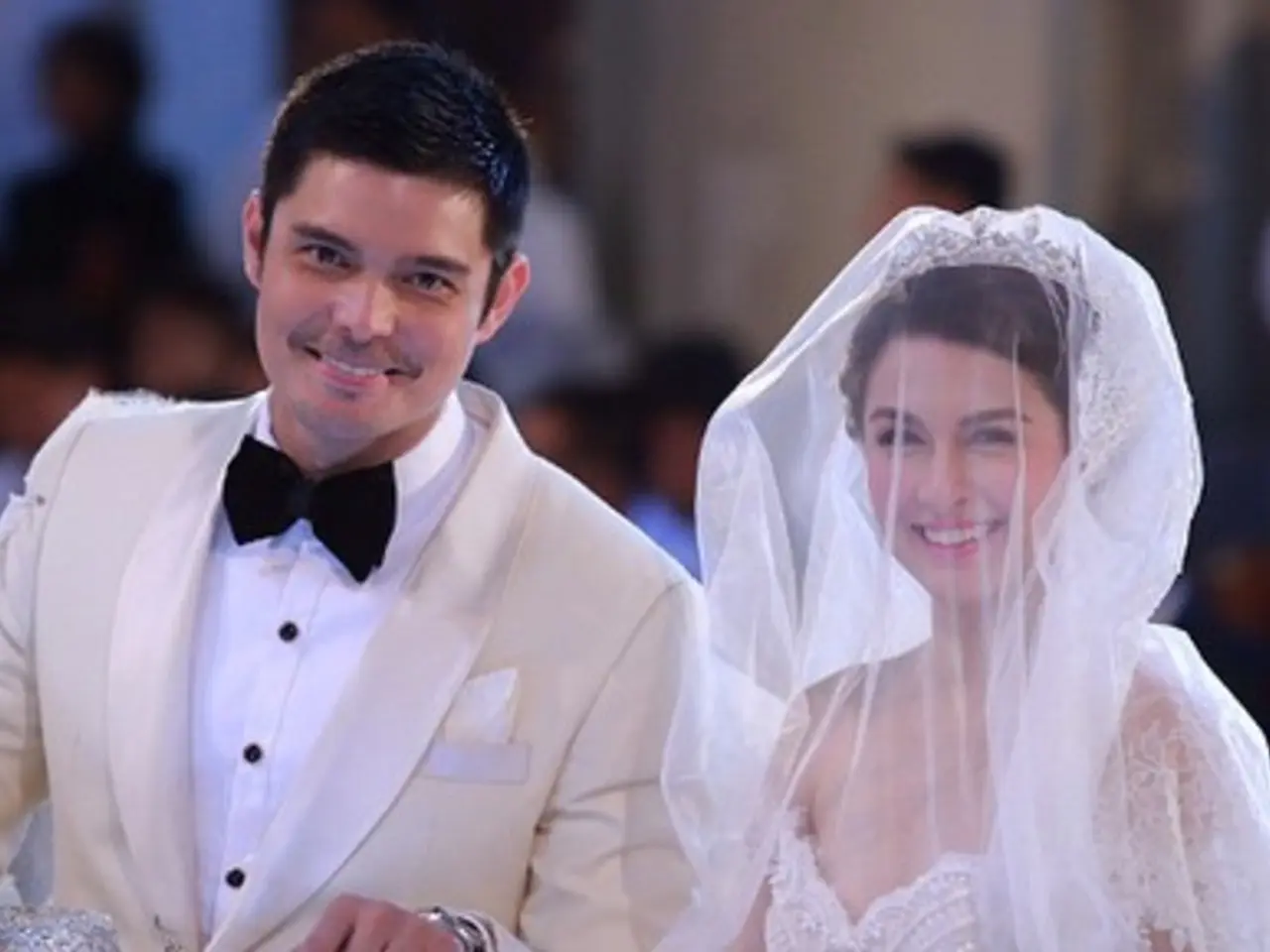Long Awaited Wedding: Bride and Groom Patiently Wait 885 Days for Final Approval
==================================================================
In a heartwarming and historic event, Kathrin Pollnow and Klaus-Dieter Rose, a disabled couple from Oschersleben, tied the knot on August 9, 2025, after overcoming a legal dispute regarding their contractual capacity.
The couple, who have known each other for around 15 years and have been living together in a small apartment in an institution for people with disabilities for over two years, exchanged their vows in the town hall after a wait of 885 days. The ceremony was attended by around 50 people, including friends, family, and fellow residents from the facility.
State Commissioner Walbrach emphasised the importance of pointing out the rights of people with disabilities in the authorities, stating that the United Nations Convention on the Rights of Persons with Disabilities (UN CRPD) prohibits any form of discrimination. This unique case in Saxony-Anhalt is not known to have been replicated in present-day Germany, according to the Federal Association of Lebenshilfe.
Kathrin Pollnow, who is accompanied by a carer when she goes shopping, and Klaus-Dieter Rose, faced questions about their understanding of the implications of marriage. Annett Marziniak, team leader in the living area of an institution for disabled people, explained that the case was about this very issue. Months of correspondence, including guardianship files, medical records, and expert opinions, were exchanged during the legal dispute.
However, Marziniak, who was a caregiver to the couple, stated that the marriage is all about love, and not about security, care, or money for Kathrin Pollnow and Klaus-Dieter Rose. The couple signed the marriage papers themselves, and a cleaning schedule is in place for the apartment where they live.
The local court in Magdeburg made a decision at the beginning of the year that the registry office must perform the marriage for Kathrin Pollnow and Klaus-Dieter Rose. The mayor of Oschersleben, Benjamin Kanngießer, explained that people can be uncertain about the marriage of individuals with disabilities.
The Grundgesetz (Basic Law) of Germany strongly protects human rights and prohibits discrimination, but there are still gaps in recognition and protections for certain groups like intersex people. To ensure Germany upholds the rights of disabled couples consistent with the UN CRPD, authorities can take key steps such as removing physical and procedural barriers, providing legal guidance and support services, and guaranteeing that legislation and administrative practices align with the UN CRPD's mandate.
The ceremony was accompanied by Andy Borg's song "The famous three words", and Kathrin Pollnow plans to throw the bouquet at a later celebration. This historic marriage is a testament to love and the importance of upholding the rights of disabled couples in Germany.
- In discussing the importance of upholding human rights, the Grundgesetz (Basic Law) of Germany, like the United Nations Convention on the Rights of Persons with Disabilities (UN CRPD), strongly disallows any form of discrimination, including towards individuals with disabilities in matters related to love-and-dating and relationships.
- The relationship between Kathrin Pollnow and Klaus-Dieter Rose, who tied the knot despite facing legal disputes regarding their contractual capacity, serves as a shining example of mental-health and health-and-wellness, as their marriage is rooted in love rather than security, care, or money.
- As Kathrin Pollnow's lifestyle now includes having a carer assist her with shopping, and the couple's marriage does not involve any financial benefits or entitlements, one can see that the misconception of marriage for people with disabilities being primarily about care and support no longer holds true; instead, it's about the choice to live life together in a life-style filled with love and well-being.




